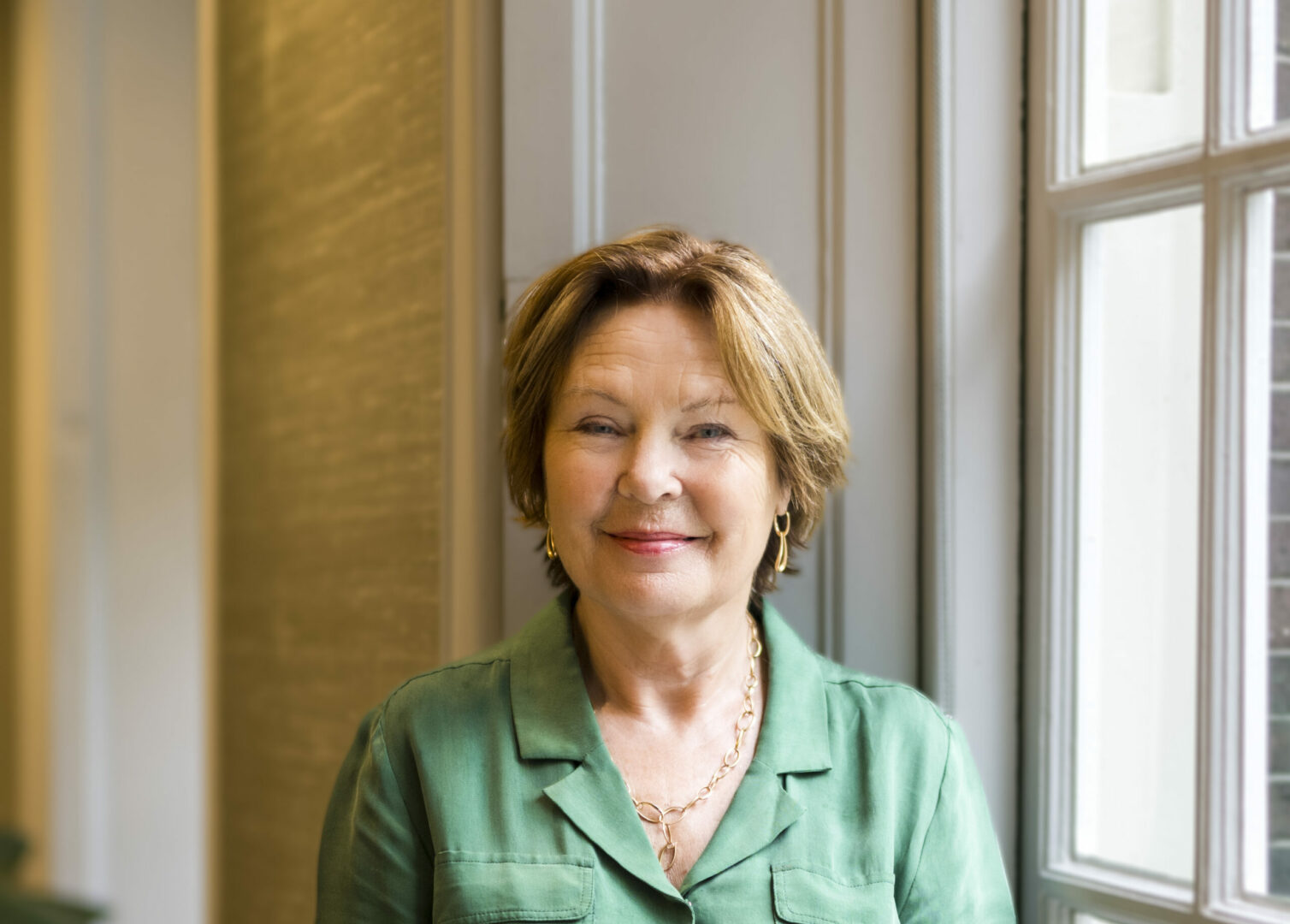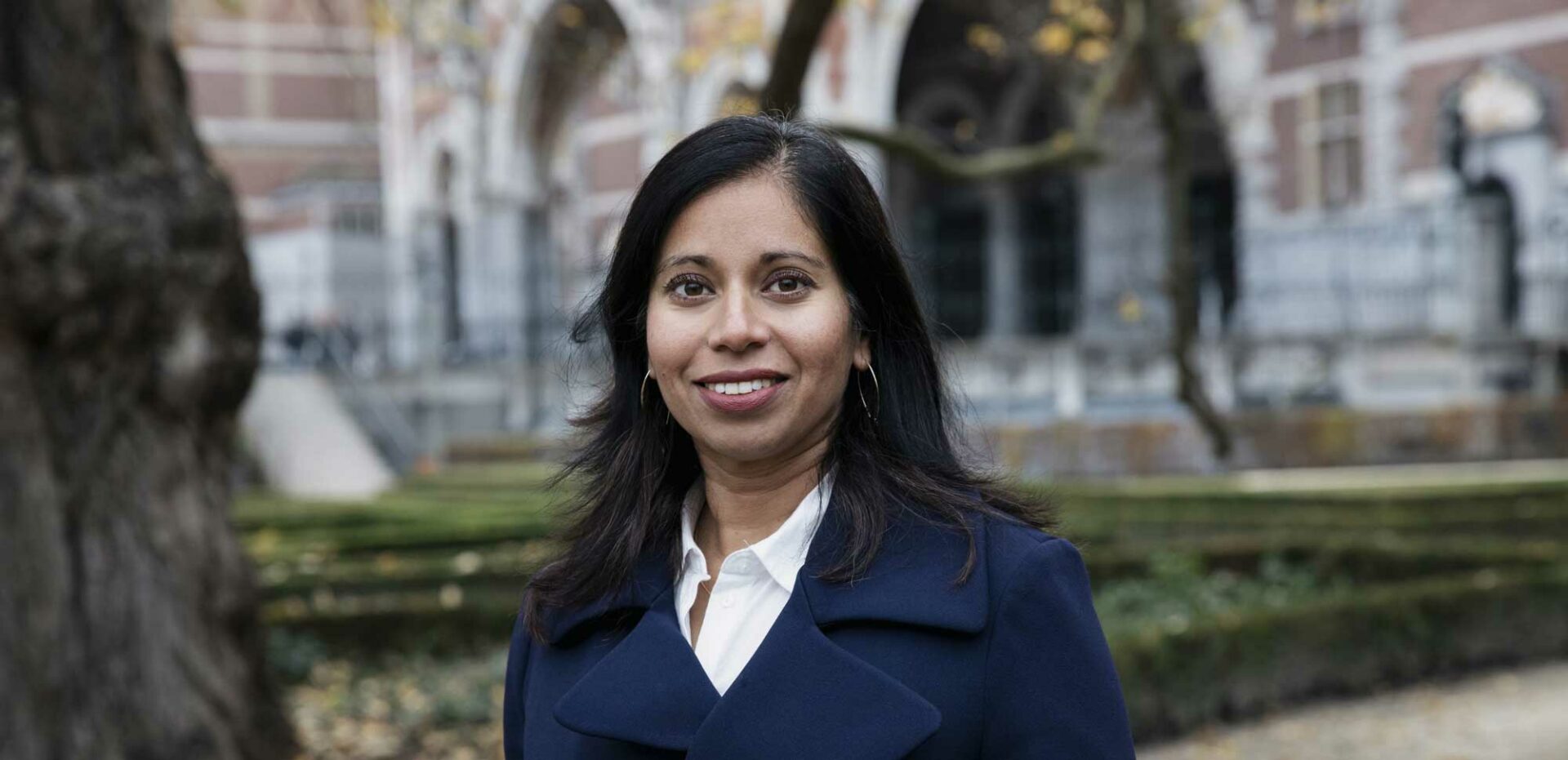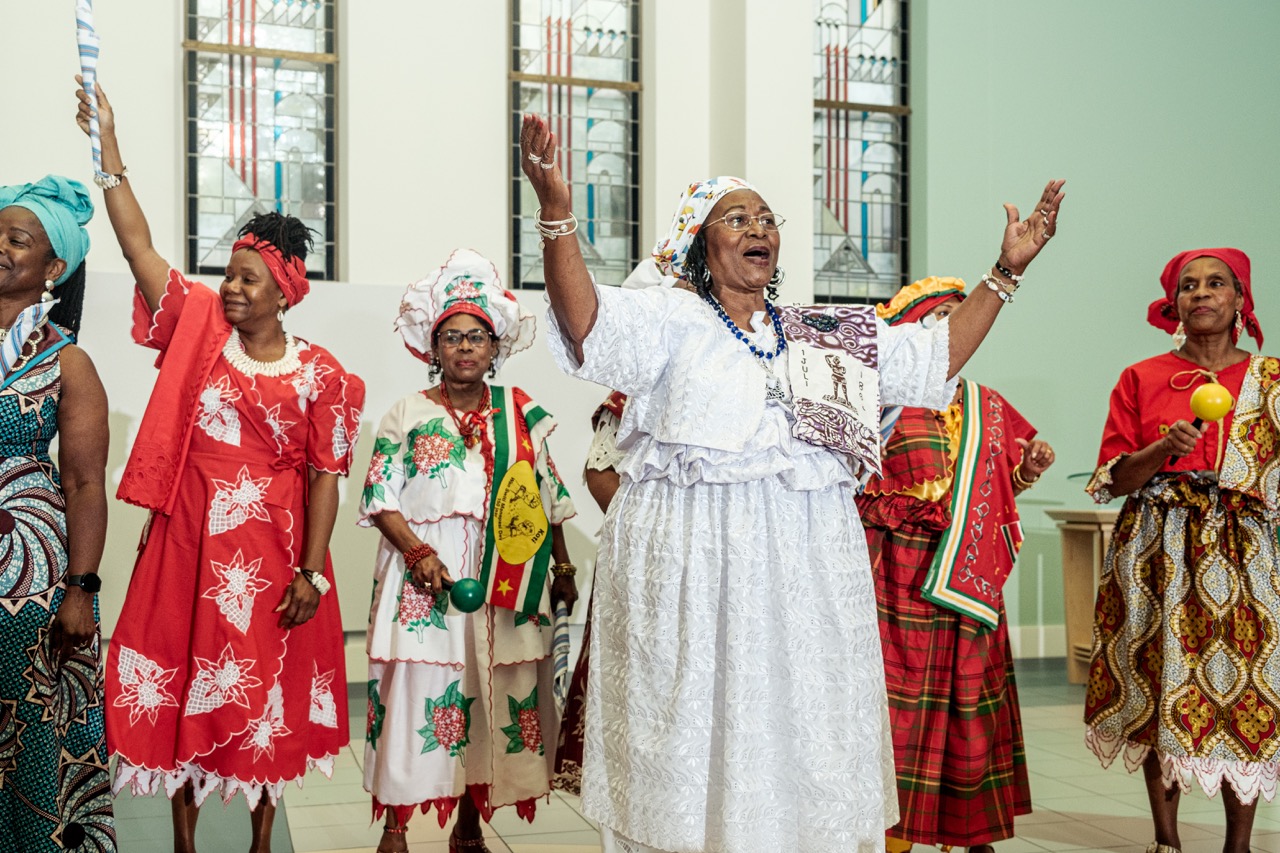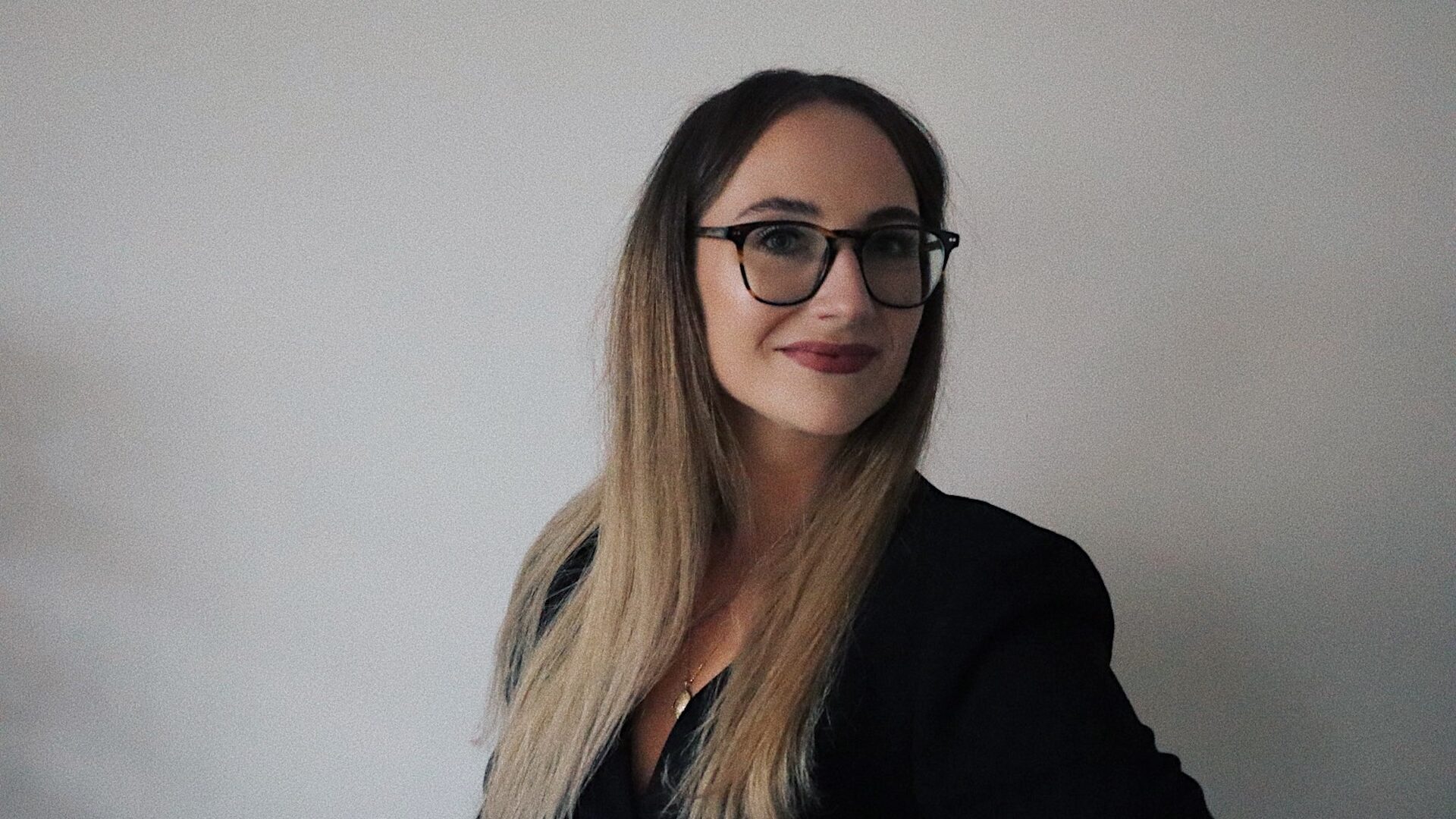
New director of European Press Prize: 'Propaganda is also submitted'
In a time when press freedom in Europe is declining, Jennifer Athanasiou-Prins (29) is becoming the director of the European Press Prize. A conversation about rankings, wire-tapping, and the secret sauce of her organization.
"It's happening in small steps," "it's a slow process of years," and "it's all very deliberate," say various editors-in-chief from Bulgaria and Hungary. Do you also see press freedom declining in Europe?
"We can't ignore it. When I compare the current situation to six years ago when I started at the European Press Prize, I see a different world. Back then, I mapped independent media in Europe, and that list has since significantly shrunk. It's shocking to see how low some European countries rank on the World Press Freedom Index: Bulgaria at 71, Hungary at 72, Greece at 107. And yet, it's happening very gradually."
Like a silent killer?
"Exactly. Not only in the figurative sense of the word. In recent years, journalists have been murdered in various European countries, including in the Netherlands."
What picture emerges from the contact you have with journalists from all over Europe?
"I can almost say with certainty about our laureates from Russia that none of them still live in Russia. Journalists in Eastern and Central Europe face the biggest problems, although it varies greatly by region and medium. There is wire-tapping by governments to suppress publications, journalists are followed by secret services, face significant financial challenges. Others deal with SLAPPs [strategic lawsuit against public participation, lawsuits filed to intimidate and silence journalists]."
Is there anywhere in Europe where things are improving?
"I am inclined to say: in Poland. There, it seems that politically, the light at the end of the tunnel has been reached."
Our potential future prime minister called journalists 'scum of the earth.' How seriously should we take that?
"The fact that a potential prime minister disparages the watchdog of democracy like that is concerning. Trust in journalism is declining, which goes hand in hand with declining press freedom. For journalists, it becomes very difficult to do their job in an environment where governments are hostile, and trust among citizens is low."
In Western European, do we realize how fragile press freedom is?
"We still too often think we are frontrunners, while there are cracks here too. Journalist Rasit Elibol spoke in an article about 'concrete rot in the rule of law.' Often, you only realize only afterwards that things have been crumbling for a while."
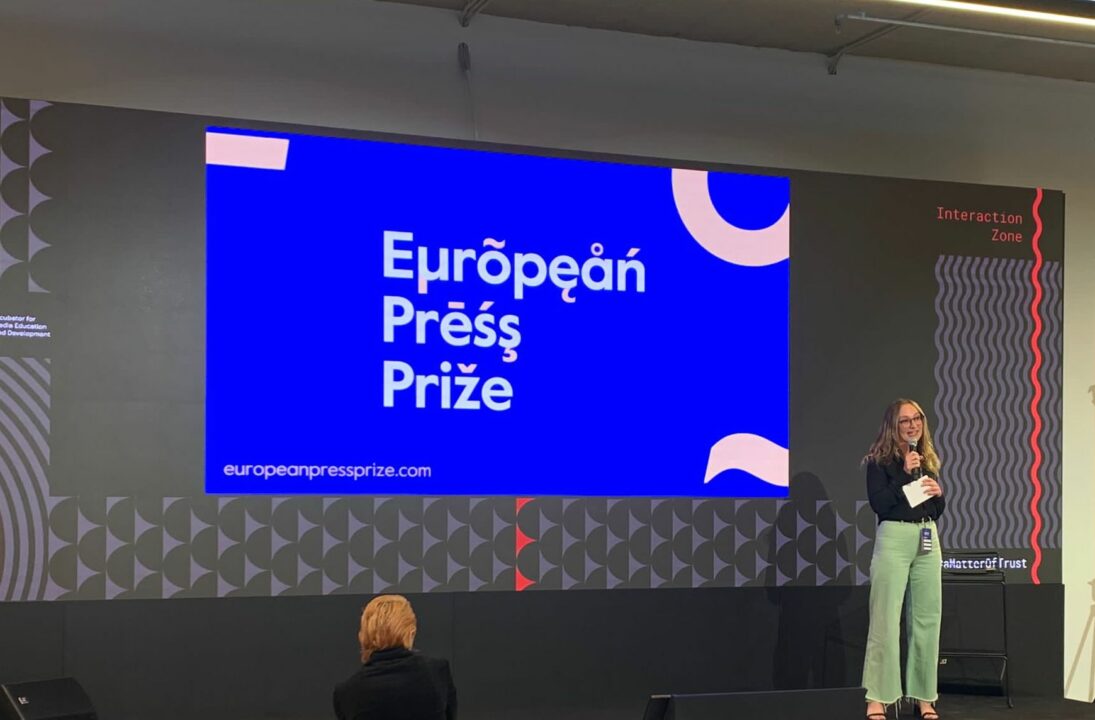
Jennifer Athanasiou-Prins op het International Journalism Forum in Athene, 2022
What does the rapidly declining press freedom mean for the European Press Prize?
"In 2019, one of the Russian winners said: 'this prize will not physically keep me safe, but it has now become a bit harder for the government to harm me.' In the coming years, we want to become a hallmark for independent European journalism. That will make good journalists more resilient."
"What is quality journalism? What standards do we use? These are ongoing issues. Our secret sauce is the conversations we have. I remember a lively discussion between someone from Scandinavia and the Balkans. Both were in our PrepCom, a Preparatory Committee of 21 experienced journalists and editors from all corners of Europe who read hundreds of entries in the original language each year and make a pre-selection. One member thought the presentation of a piece 'didn't look good,' while the other pointed out that journalists don't always have the means to polish their piece to a glossy finish."
"In the end, with the European Press Prize, we continue to compare the incomparable. Journalists work under different conditions in each country, and it's up to us to value that. So in 2017, contrary to all expectations, it wasn't the Panama Papers that won, but a small Serbian investigative collective that uncovered corruption against all odds."
Voor de European Press Prize van 2024 zijn voor het eerst ook Russische en Belarussische inzendingen welkom. Wat is de reden daarvoor?
"They have always been able to submit. We mention it explicitly now because these countries have recently left the Council of Europe. Our starting point is that anyone on the European continent can submit, including journalists from Georgia and Turkey."
That seems risky. Is independent quality journalism even possible in a country like Russia? How do you ensure that you don't reinforce propaganda?
"Propaganda is definitely also submitted. We have organized the selection process to filter that out. We read everything in the original language, and in the pre-selection, there are at least seven pairs of eyes looking at a piece. And then the conversations still have to take place."
"It would not be in line with our values to exclude Russian and Belarusian journalists. There are plenty of journalists from these countries who live in exile and do fantastic journalism. Think of Dimitri Muratov from Novaya Gazeta, who won the Nobel Prize, or Roman Anin, who won the investigative prize in 2021."
You have a background in law and wrote a thesis on the Dutch government's proposal to introduce a new legal form for the third parent in multi-parent families, namely that of partial custody. How come you became director of the European Press Prize?
"It feels like a logical step. In a democracy, both law and journalism play an indispensable role, and it feels close to each other. I have an immense sense of justice, that's where my drive lies. The advantage of having a director with a legal background is also that I don't find it boring to read legal texts."
"This partial custody has turned out to be an empty promise to keep multi-parent families occupied. That third parent still wouldn't have the same status as the other parents."
Where does your perspective take the EPP in the coming years?
"The key for me lies in cultural sensitivity. I come from two cultures myself, Dutch and Greek. Both are European, yet sometimes they feel like different planets. I see that also reflected in our PrepCom, where members from Denmark, Georgia, and Turkey have to agree on the selection. Add to that that our funders come from different countries. It's a constant juggling act with habits and cultural codes. If you overlook that, you miss out on so much."
"That contains a crucial lesson for journalism. The future lies in international collaborations. We must be aware of cultural differences and know how to handle them sensitively. If we want the watchdog to bark across borders, at least."
Jennifer Athanasiou-Prins's three reading recommendations:
- "A piece that has stuck with me is 'Merhaba, I’m here to give up my Turkish nationality' , an essay by Rasit Elibol in De Groene Amsterdammer. Why? I am moved to tears every time I read this publication."
- "I learned the term 'scrollytelling' from Isobel Cockerell's The Uyghur women fighting China’s surveillance state The story by this British journalist is a total experience that unfolds as you scroll, fantastically written and interspersed with videos, photos, animations, and illustrations."
- "The Spanish journalist Lara Bonilla must not be missing from this list: she appeared on our shortlist for two consecutive years with pieces on the lack of knowledge about the female body: Infertility: the other side of motherhood and Woman’s Body, Man’s Medicine. She also won with the latter."
- "This is a non-reading recommendation because it's such a heavy piece. So, also a trigger warning for the shocking themes of suicide, self-harm, and eating disorders that appear in this piece. Trigger Warning is a Norwegian publication about suicide networks. I put a lot of effort into including all European 113 helplines in the piece and working with our developers to build special options for our website that initially shield explicit images."
BIO JENNIFER ATHANASIOU-PRINS
15 July 1994 born in Marousi, Greece
1996 moved to Maastricht
2006-2013 Attended Bonnefanten College Maastricht
2013-2015 Bachelor of Political Science, Amsterdam
2016-2019 Bachelor of Law, Amsterdam
2019 Head of Operations at the European Press Prize
2019-2023 Master's in Private Law, Amsterdam
2021 Contracts and Partner Lead at the European Press Prize
2023 Director of the European Press Prize
About the European Press Prize
The European Press Prize has been in existence since 2012. It was established by the Democracy and Media Fund together with six other parties, including The Guardian Foundation, the Jyllands Posten Foundation, and the Veronica Association. The goal: to celebrate and encourage the best journalism on the continent. Every year, awards are given out in various categories, from investigative journalism to opinion and innovation.
